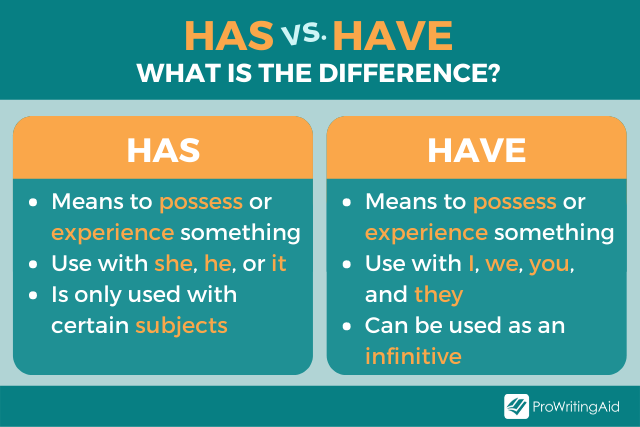Has Linda Ronstadt Got Dementia? Unpacking The Truth About Her Health
It's very natural, you know, to wonder about the well-being of beloved public figures, especially those who have touched so many lives with their incredible talent. Linda Ronstadt, a voice that truly defined an era, has been out of the spotlight for some time, and this has, quite naturally, led to a lot of questions. People are, in a way, searching for answers about her current health.
There's been a lot of talk, a lot of speculation, floating around, and one question seems to pop up more than others: "Has Linda Ronstadt got dementia?" It's a query that shows just how much people care about her, and how much her absence from performing has been felt. Many of us remember her powerful singing, her ability to make any song her own, and so, the curiosity about her health is, in some respects, a way of holding onto those memories.
This article aims to clear things up, providing clear, factual information about Linda Ronstadt's health journey. We want to address the rumors directly and, perhaps, shed some light on what has actually been happening. It's important to get the real story, after all, and to understand the challenges she has faced, and continues to face, with grace and strength.
Table of Contents
- Linda Ronstadt: A Brief Biography
- Her Health Journey: Addressing the Rumors
- Parkinson's Disease: What It Means for a Singer
- Public Life and Advocacy
- Frequently Asked Questions
Linda Ronstadt: A Brief Biography
Linda Ronstadt, a name synonymous with musical versatility, has, you know, truly left an incredible mark on the music scene. Born in Tucson, Arizona, she began her singing career in the mid-1960s, quickly becoming a central figure in the folk-rock movement. Her ability to move between genres—from rock and country to pop, Latin, and even operetta—was, quite frankly, astonishing.
She brought a powerful, clear voice to every song, and her emotional delivery resonated with millions. Albums like "Heart Like a Wheel," "Simple Dreams," and "Living in the USA" became huge successes, cementing her status as one of the most popular and respected artists of her time. She has, you know, earned numerous awards and accolades, including multiple Grammy Awards, and is a member of the Rock and Roll Hall of Fame. Her career was, in a way, a masterclass in musical exploration, always pushing boundaries and captivating audiences.
Personal Details and Bio Data
| Detail | Information |
|---|---|
| Full Name | Linda Maria Ronstadt |
| Date of Birth | July 15, 1946 |
| Place of Birth | Tucson, Arizona, USA |
| Occupation | Singer, Songwriter, Producer |
| Genres | Rock, Country, Pop, Folk, Latin, Opera |
| Active Years | 1967–2011 (performing) |
| Notable Awards | 11 Grammy Awards, Latin Grammy Lifetime Achievement Award, National Medal of Arts |
| Hall of Fame | Rock and Roll Hall of Fame (2014) |
Her Health Journey: Addressing the Rumors
The question "Has Linda Ronstadt got dementia?" is, you know, a common one, but it's important to clarify the actual situation. Linda Ronstadt has not been diagnosed with dementia. Her health challenges stem from a different condition, one that has significantly impacted her ability to sing and perform. This is, really, a key distinction to make.
In 2013, Linda Ronstadt publicly shared that she had been diagnosed with Parkinson's disease. This revelation came after years of struggling with symptoms that made it increasingly difficult for her to control her voice. She had noticed issues with her singing voice as early as 2000, but it took a while, you know, to get a clear diagnosis. The initial symptoms were, apparently, very subtle, making it hard to pinpoint the problem.
Parkinson's disease is a progressive neurological disorder that affects movement. It develops gradually, sometimes starting with a barely noticeable tremor in one limb. While it primarily affects motor skills, it can also, in some cases, have non-motor symptoms, including cognitive changes. However, it is not the same as dementia, though some forms of dementia can be associated with Parkinson's in later stages for some individuals. For Linda, the main impact has been on her vocal control and physical movement, which is, obviously, devastating for a singer.
Her announcement was, understandably, a shock to many fans. It explained why she had stopped touring and recording, and why her incredible voice had, sadly, fallen silent. She has been very open about her struggles, offering insights into what it means to live with such a condition, which is, you know, incredibly brave.
The disease, as she has described it, has taken away her ability to sing, which was, literally, her life's work and passion. She once said that she could no longer "hit the notes," and that her voice had become "unreliable." This is, pretty much, the heartbreaking reality she has faced. The tremors and lack of muscle control that come with Parkinson's make it impossible to sustain the precise vocal control needed for singing, and so, she has had to accept this new reality, which is, very, very hard for anyone, especially an artist.
It's worth noting that while Parkinson's can sometimes lead to cognitive issues, Linda Ronstadt's primary diagnosis and the public information available do not indicate dementia. The focus of her public statements has always been on the motor symptoms and their effect on her vocal abilities. So, to be clear, the answer to "Has Linda Ronstadt got dementia?" is no; she has Parkinson's disease, which is a different, though also serious, neurological condition.
Parkinson's Disease: What It Means for a Singer
Parkinson's disease, as we've discussed, primarily impacts the central nervous system, leading to a range of symptoms that can affect movement, balance, and coordination. For a singer, these effects can be particularly devastating. The voice, you know, relies on incredibly precise muscle control in the larynx, diaphragm, and respiratory system. When these muscles are affected by tremors, rigidity, or slowness of movement, the ability to produce clear, sustained, and controlled vocal sounds diminishes.
Linda Ronstadt has, in fact, spoken candidly about how the disease first manifested as a subtle loss of vocal control. She described it as a feeling that her voice was "seizing up" or that she couldn't hit the high notes she once could. This was, apparently, a gradual process, making it difficult to diagnose early on. The symptoms of Parkinson's can vary widely among individuals, but for a vocalist, even minor changes in muscle control can have a profound impact on their craft. It's not just about hitting notes; it's about breath support, vocal resonance, and maintaining pitch, all of which are compromised when the nervous system struggles to send precise signals to the muscles.
Beyond the vocal cords themselves, Parkinson's can affect posture and breathing, both of which are, you know, absolutely essential for singing. A singer needs strong, consistent breath support to power their voice. If the muscles involved in breathing become rigid or less coordinated, it becomes incredibly difficult to sustain a note or phrase. This can lead to a weaker voice, a loss of vocal range, and an inability to project. It's a bit like trying to play a finely tuned instrument when your hands are shaking; the desired sound simply won't come out.
Moreover, the fatigue that often accompanies Parkinson's can also play a role. Performing requires immense physical and mental stamina. When someone is battling chronic fatigue, the energy needed for a full concert or even a recording session is, quite frankly, just not there. So, it's not merely about the voice; it's about the entire physical system that supports a singer's performance, all of which can be, you know, very much affected by this condition. Her decision to retire from singing was, therefore, a very difficult but necessary one, given the physical toll the disease was taking.
Public Life and Advocacy
Even though her singing career has, sadly, come to an end, Linda Ronstadt has remained a public figure, using her platform to speak about her experiences and advocate for others. She has, in a way, become a voice for those living with Parkinson's disease. Her openness about her diagnosis has helped to raise awareness and reduce the stigma often associated with neurological conditions. This is, you know, incredibly important work.
She has participated in interviews and documentaries, sharing the personal impact of Parkinson's on her life. In her memoir, "Simple Dreams: A Musical Memoir," she discusses her health challenges with a great deal of honesty. This willingness to share her story has, apparently, resonated with many people, offering comfort and understanding to others facing similar battles. She has, you know, made it clear that while the disease has taken her voice, it has not taken her spirit or her commitment to helping others.
Her advocacy extends to supporting research and initiatives aimed at finding better treatments and, eventually, a cure for Parkinson's. She understands the importance of public education and funding for scientific advancements. By speaking out, she helps to keep the conversation going, ensuring that this condition receives the attention and resources it needs. It's a powerful example of someone turning a personal challenge into an opportunity to make a positive difference for others, which is, truly, inspiring.
Her legacy, you know, isn't just in her music; it's also in her courage and her continued efforts to shed light on a difficult health journey. She continues to be a strong presence, even without her singing voice, showing that impact can come in many forms. This is, arguably, a testament to her enduring strength and character.
Frequently Asked Questions
Is Linda Ronstadt still alive as of [Current Month, Current Year]?
Yes, as of [Current Month, Current Year], Linda Ronstadt is still alive. She continues to live in San Francisco and has, you know, made public appearances and given interviews, discussing her life and her experiences with Parkinson's disease. She remains a beloved figure, very much in the public eye through her advocacy and memoirs.
What is Linda Ronstadt's current health condition?
Linda Ronstadt has Parkinson's disease, a neurological disorder that affects movement. This condition has caused her to lose the ability to sing, due to the impact on her vocal control and muscle coordination. She has been very open about her struggles with the disease since her diagnosis was made public in 2013, and it is, quite frankly, her primary health challenge.
Why did Linda Ronstadt stop singing?
Linda Ronstadt stopped singing because of the effects of Parkinson's disease. The condition progressively affected her ability to control her voice, making it impossible for her to hit notes or sustain the precise vocal control required for singing. She announced her retirement from performing in 2011, and later revealed her diagnosis, explaining the reason for her departure from the stage. It was, you know, a very difficult decision, but one she had to make due to the physical limitations caused by her illness.
Learning about Linda Ronstadt's health journey helps us to understand the challenges she has faced, and, in a way, puts to rest the rumors about dementia. Her diagnosis of Parkinson's disease has, sadly, taken her singing voice, but it has not diminished her spirit or her impact on the world. She continues to be an inspiration, showing immense strength and using her experience to help others. It's a powerful story of resilience, and one that reminds us to appreciate the true facts behind public figures' lives. To learn more about neurological conditions on our site, and link to this page for more insights, you know, feel free to explore.

Have vs Has: What's the Difference? - The Grammar Guide

Has vs. Have: How to Use Have vs. Has with Useful Examples • 7ESL

Has vs. Have: Proper Grammar Rules | YourDictionary